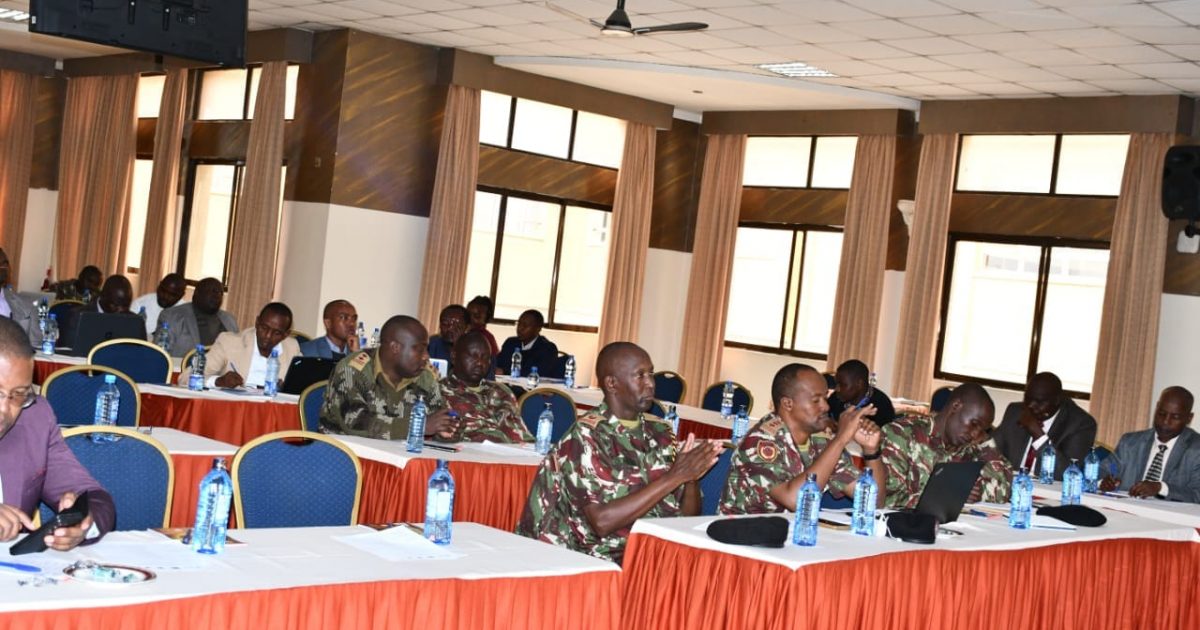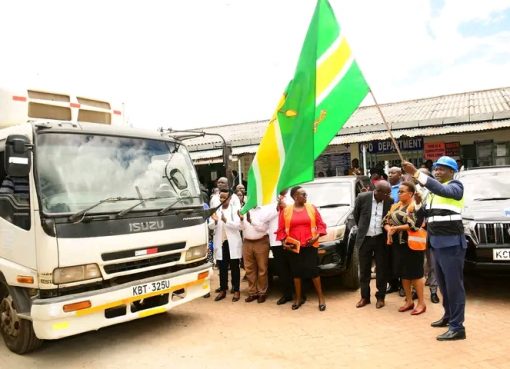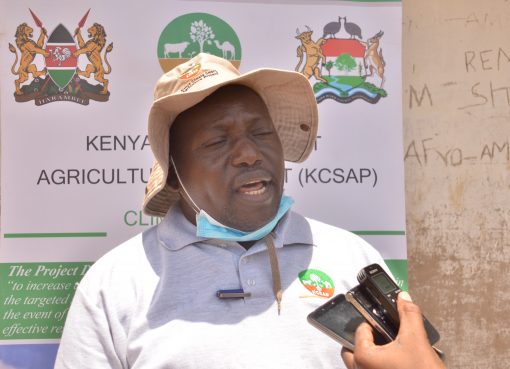The County Government of Nakuru is increasing investments in new technologies such as new modern pipelines and advanced metering solutions (Smart meters) to reduce non-revenue water loses.
The County Executive Committee Member (CECM) of Water, Environment, Climate Change Energy and Natural Resources Dr. Nelson Maara said the County government intended to reduce wastages in the water generated from its three Water Service Providers (WSPs), from an average of 54 per cent to 20 per cent through several intervention measures.
He explained that the County was exploring the application of Geographical Information System (GIS) for receiving real-time data on bursts and leakages, installation of smart meters for accurate billing, replacement of the dilapidated infrastructure and development of institutional anti-corruption policies and enforcement measures to prevent illegal connections.
While observing that Kenya loses about 430,000 cubic metres of water, equivalent to Sh12.2 billion, per year due to unnecessary wastages, Dr. Maara argued that by fixing inefficiencies in water supply systems, it will save a huge portion of public finances.
He said nationally, more than 200 million cubic meters of water valued at over Sh12 billion was being lost annually, adding that such losses led to reduction in the quality and availability of water services, often resulting in inadequate water and sanitation access for citizens.
The CECM however assured that his department was implementing several measures to curb water losses including leak detection and repair, conducting regular audits and monitoring to identify and address leaks promptly, replacing aging pipes with durable, installing modern tamper-proof meters to improve billing accuracy, and promoting public education on water conservation and leak reporting.
Speaking during a workshop themed “Accelerating Reduction of Non-Revenue Water to Sustainable Levels,” Dr. Maara pledged that old wastewater treatment, water supply and sewerage systems managed by the Nakuru Water and Sanitation Services Company Ltd (NAWASSCO), Nakuru Rural Water and Sanitation Company Limited (NARUWASCO) and Naivasha Water, Sewerage and Sanitation Company Ltd (NAIVAWASCO) will be rehabilitated and upgraded to provide improved safe water access to communities in the devolved unit.
Maara underscored the importance of safe water supplies, hygienic sanitation and good water management saying they were fundamental to public health and environmental conservation.
Non-Revenue Water (NRW) refers to water that is produced but lost through inefficient or rundown supply infrastructure and malfunctioning meters, leaks, theft and meter inaccuracies before it reaches the customers.
Water Services and Regulatory Board (WASREB) defines levels of Non-Revenue-Water of under 20 per cent as good, 20-25per cent as acceptable and over 25 per cent as not acceptable. Non-revenue-water affects the sustainability and economic viability of water utilities.
A Non-Revenue Water (NRW) audit carried out by the County recently, revealed that the three Water service providers lose more than half of their treated drinking water to leaks, theft and meter inaccuracies, resulting in monthly losses of over Shs 40 million and scarcity of the commodity.
In July 2023, the Ministry of Water and Environment launched the Non-Revenue Water Management Standards, followed by ongoing campaigns to encourage sustainable management of non-revenue water across the sector.
The national government, through various agencies, has developed a number of policies to promote the enjoyment of the right to “clean and safe water in adequate quantities and to reasonable standards of sanitation” as stipulated in Article 43 of the Constitution.
Kenya has an ambitious national water master plan with 2030 targets. It also has its eye on the Sustainable Development Goal number six, on clean water and sanitation. So far, Kenya scores 52 percent in implementation of integrated water resources management as a component of SDG -6.
Through the development of the National Water Master Plan, Japan has been working with Kenya in assessing and evaluating the availability, reliability and quality of this country’s water resources, taking into consideration the effect of climate change and rapid urbanization.
By Esther Mwangi and Felistars Kahungu





